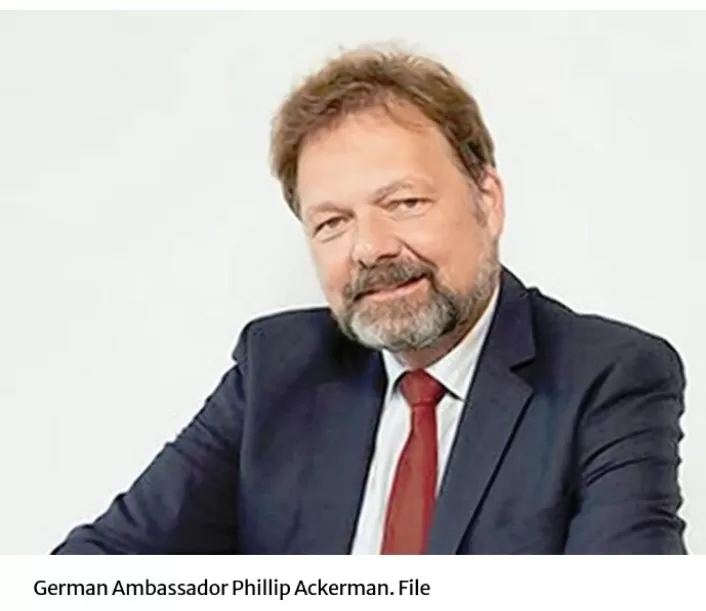New Delhi- In an intriguing twist of diplomatic maneuvering, the G-7 nations rallied to salvage the G-20 Summit from a potential unraveling by endorsing a meticulously crafted draft declaration. German Ambassador Phillip Ackerman, in response to assertions made by several nations, including Ukraine, challenging the resolve of Western countries in their stance on Russia and Ukraine, adamantly maintains that the G-20’s integrity remains intact.
Ambassador Ackerman’s outlook paints a picture of contentment following the summit in Delhi, giving credit to the adept negotiation skills of Indian diplomats. Additionally, a groundbreaking proposal presented by a consortium comprising Indonesia, India, Brazil, and South Africa emerged as the pivotal turning point in the discussions. Notably, this proposal consisted of eight paragraphs that found their way verbatim into the Summit’s declaration under the theme “For the Planet, People, Peace, and Prosperity.” These paragraphs, while retaining the term “war” and strong rhetoric against “nuclear threats,” omitted direct criticism of Russia for its role in the Ukraine conflict, effectively amending the Bali G-20 declaration.
Ambassador Ackerman conveyed, “The G-20 is a highly significant forum, and a summit devoid of a declaration would have posed an existential threat to its continuity.” He emphasized the potential ramifications, pointing out that it would have presented formidable challenges for Brazil, the host of the next G-20 Summit in Rio De Janeiro.
Crucially, he highlighted a decisive moment orchestrated by the Indian G-20 Sherpa, Amitabh Kant, on the night of September 8th. Kant, as recounted by Ackerman, presented an ultimatum to fellow delegations: accept the proposal as is or engage Prime Minister Narendra Modi directly for any modifications. Ultimately, consensus was reached among all participating nations. Ackerman clarified that contrary to popular belief, it was Russia and China, rather than the Western bloc, that required persuasion. He emphasized Russia’s complete isolation during these negotiations, dismissing Russian Foreign Minister Sergey Lavrov’s claims of diplomatic victory due to the omission of direct naming in the document.
While Ukraine expressed its desire for a more explicit condemnation of Russia and for the description of the conflict as a “war against Ukraine,” Ambassador Ackerman emphasized the pragmatism of the situation, concluding, “Unlike Bali, where two countries, Russia and China, were dissatisfied, we now have a text endorsed by all participating nations.” Notably, Ukraine voiced disappointment over President Volodymyr Zelenskyy’s non-invitation to the G-20, despite his formal request to the Indian Prime Minister. This sentiment was followed by a visit from German Foreign Minister Annalena Baerbock to Kyiv, pledging increased support for Ukraine.




